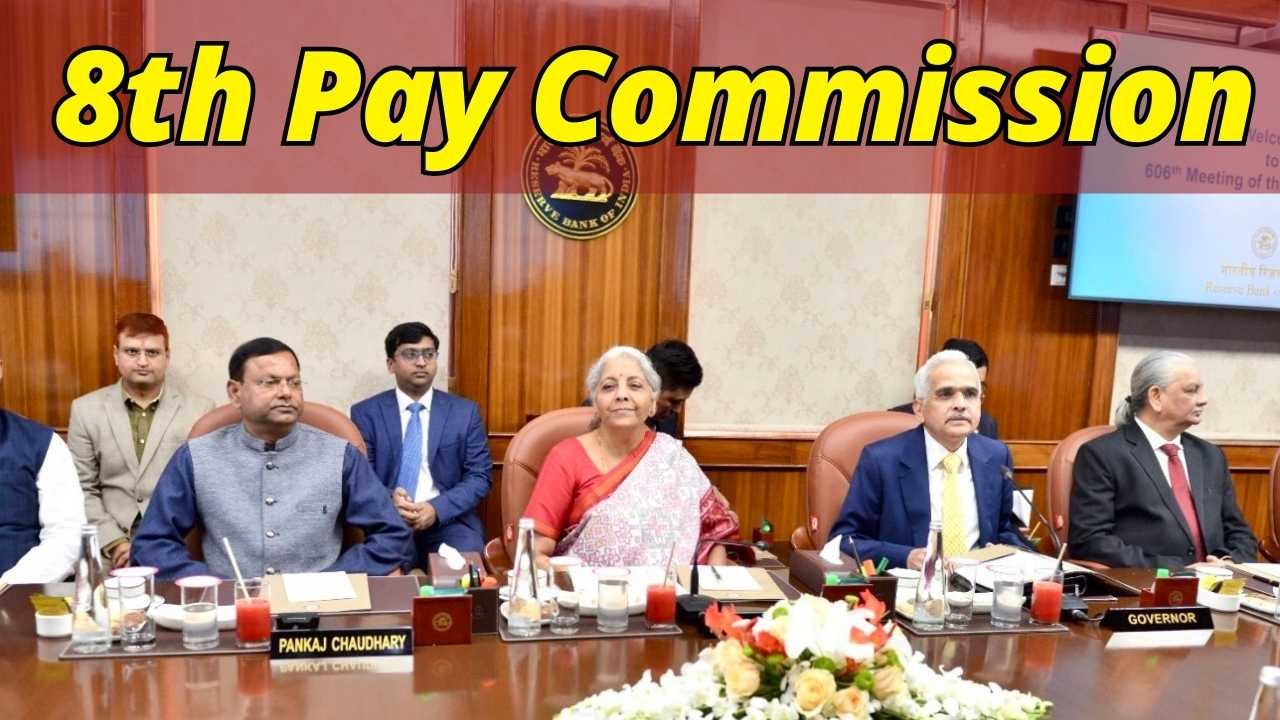8th Pay Commission: In a significant setback for over 1 crore central government employees and pensioners, the Union Finance Ministry has officially announced that there are no plans to establish the 8th Pay Commission. This confirmation was made in response to a question raised in the Rajya Sabha, bringing clarity to months of speculation.
No 8th Pay Commission in Sight
The clarification came from Pankaj Chaudhary, Minister of State in the Ministry of Finance, during a Rajya Sabha session. He stated unequivocally that the formation of the 8th Central Pay Commission is not under consideration at this time.
The question, raised by Rajya Sabha MPs Javed Ali Khan and Ramji Lal Suman, specifically asked whether the government was planning to announce the formation of the 8th Pay Commission in the upcoming Union Budget for 2025-26, scheduled for February 1, 2025.
Additionally, the MPs sought to understand whether the Union Government’s fiscal condition could be a factor delaying pay scale revisions. In response, the Minister clarified that since there are no plans for a new pay commission, the question of financial constraints does not arise.
Hope Not Lost Yet
Although the Finance Ministry’s announcement has dampened expectations, central government employees and retirees can still find a silver lining. The 7th Pay Commission, whose recommendations have been guiding employee pay scales, is set to complete its term in December 2025. This leaves a window for possible developments or interim measures before the end of the current pay cycle.
What This Means for Central Government Employees
- No Immediate Pay Revision: The announcement effectively rules out the possibility of a new pay commission being formed or announced in the 2025-26 Union Budget.
- Dependence on Current Framework: Employees will continue to rely on the pay structure defined by the 7th Pay Commission, implemented in 2016.
- Awaiting Future Announcements: There remains a possibility that the government may consider alternate mechanisms or announce a pay revision closer to the end of the 7th Pay Commission’s term.
Concerns Raised by Employees
Central government employees have expressed concerns over the lack of clarity and progress regarding pay revisions. With inflation and rising living costs, many feel that a new pay commission is overdue to ensure fair compensation.
A senior government employee shared their disappointment:
“The last major pay revision happened nearly a decade ago with the 7th Pay Commission. We were hoping for an announcement about the 8th Pay Commission to address the rising cost of living. This news is discouraging.”
Why Is the 8th Pay Commission Important?
Pay commissions play a critical role in revising salaries, pensions, and other benefits for central government employees. These revisions typically account for:
- Inflation Adjustments: Ensuring salaries keep pace with the cost of living.
- Performance Incentives: Aligning pay scales with modern workforce needs.
- Pension Revisions: Adjusting retiree benefits in line with economic changes.
The absence of a new pay commission could mean delays in addressing these critical issues, potentially impacting employee morale.
Government’s Fiscal Constraints
While the government has not explicitly linked the delay to fiscal challenges, the current economic environment—marked by post-pandemic recovery efforts and large-scale infrastructure investments—might be influencing decisions around employee compensation.
Economic analyst Anuj Sinha explains:
“The government’s focus seems to be on balancing fiscal responsibility with growth-driven spending. While this is important, neglecting employee welfare could lead to dissatisfaction among the workforce.”
Conclusion: A Waiting Game
The Finance Ministry’s confirmation that the 8th Pay Commission is not under consideration comes as a disappointment for many. However, with the 7th Pay Commission’s term ending in December 2025, there remains time for future developments.
For now, central government employees and retirees must wait and watch, hoping that their concerns will be addressed through alternate measures or a late-stage announcement. As the Union Budget for 2025-26 approaches, all eyes will be on the government for any signals of reconsideration.
While this announcement closes one door, the possibility of a future revision keeps the hope alive
